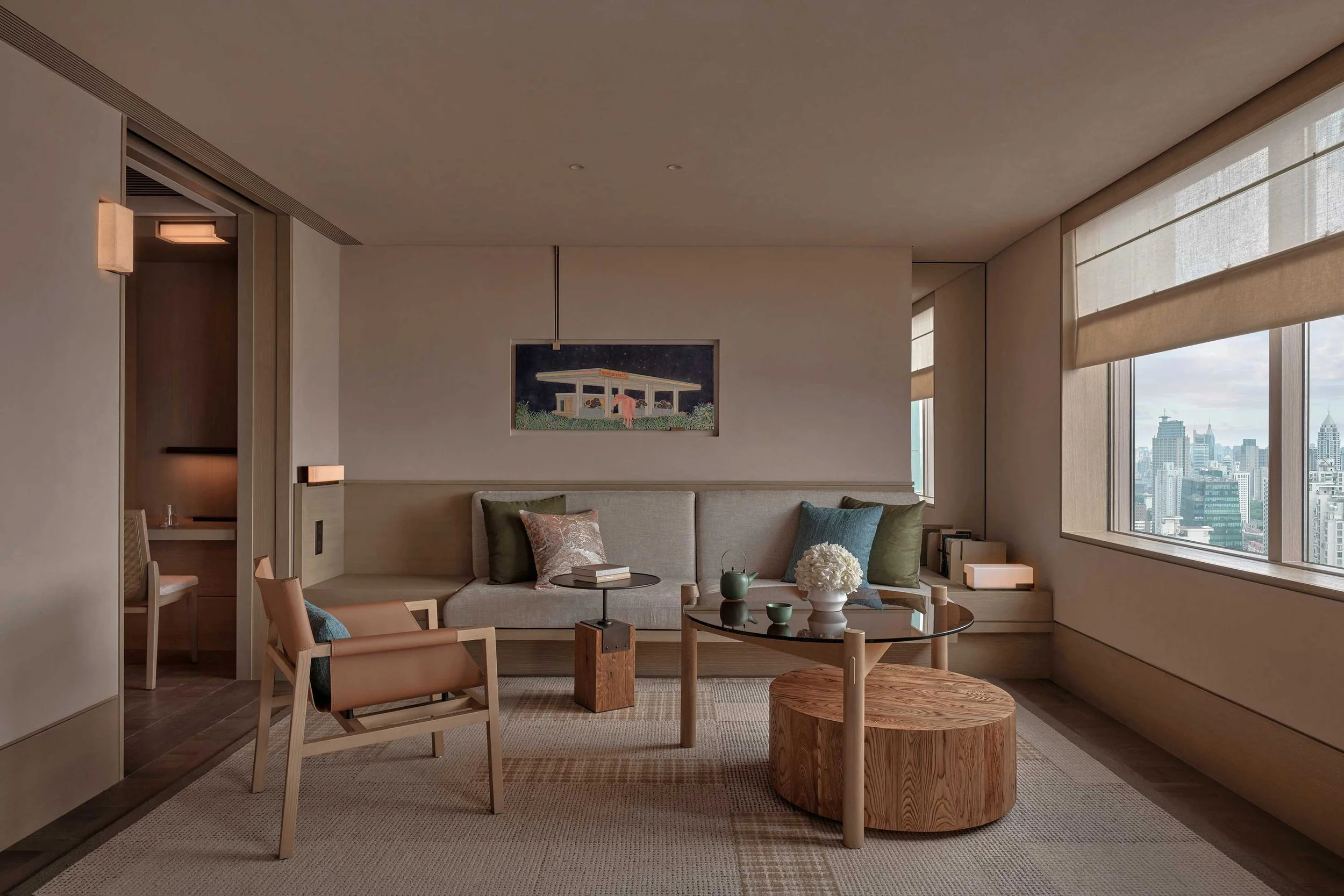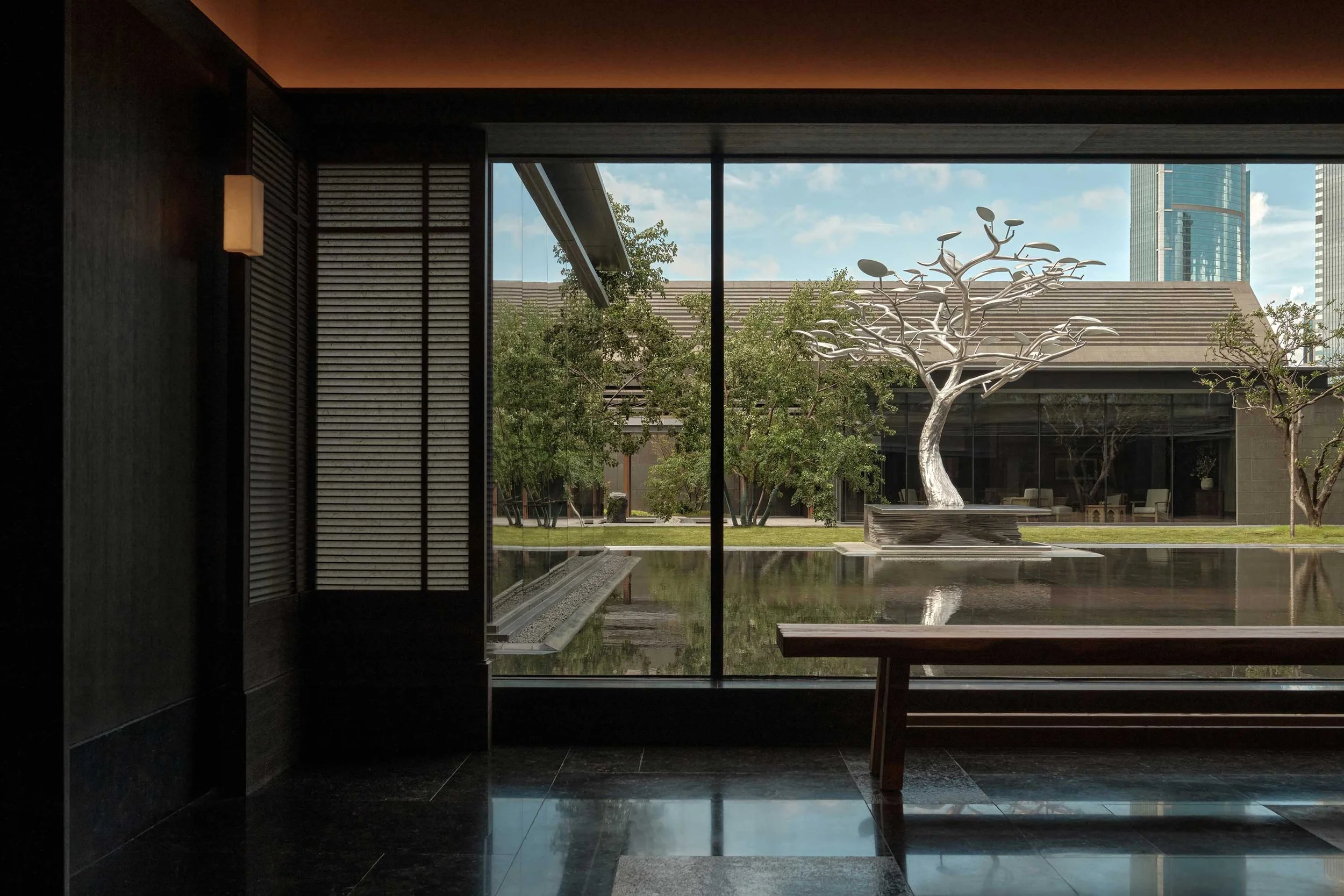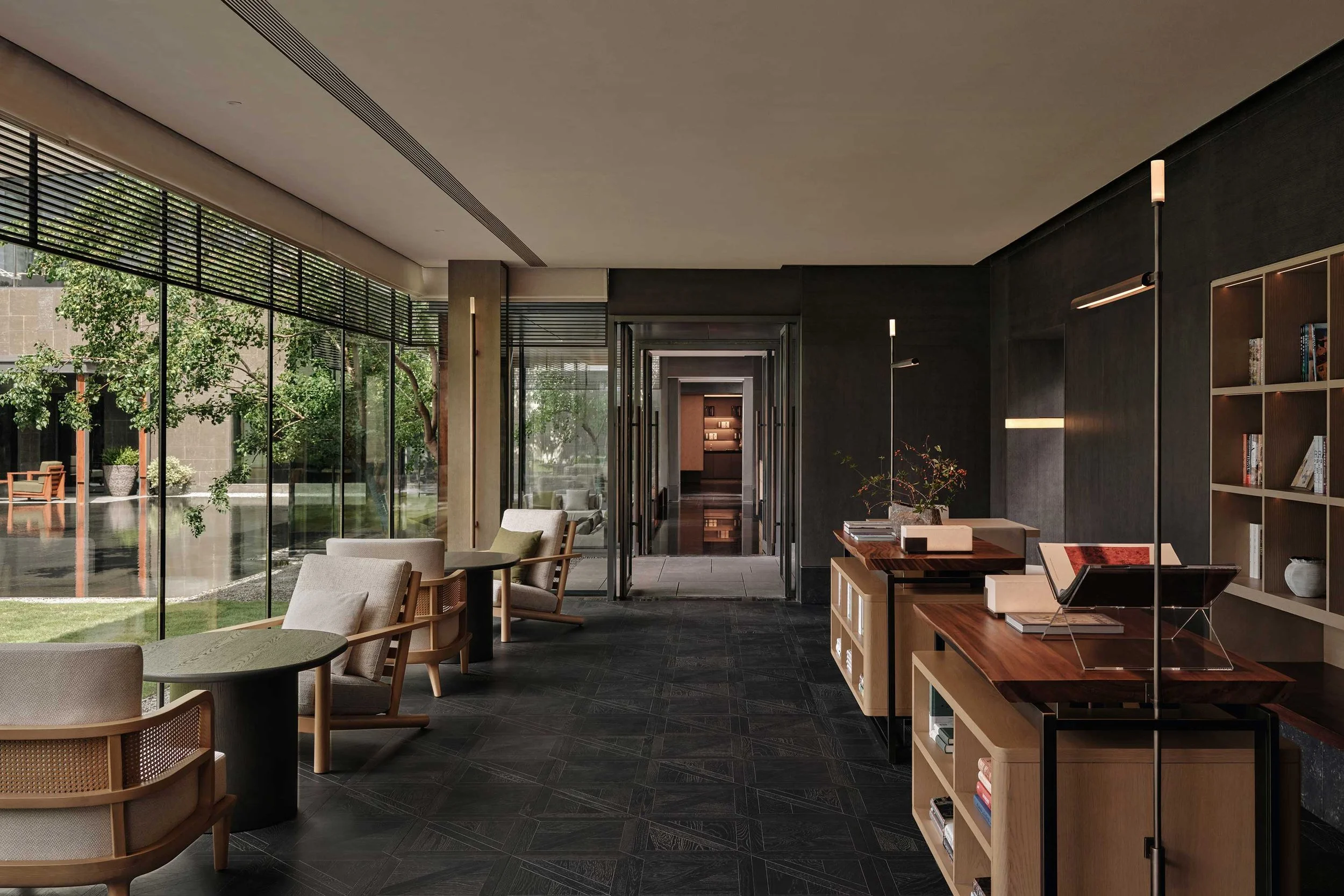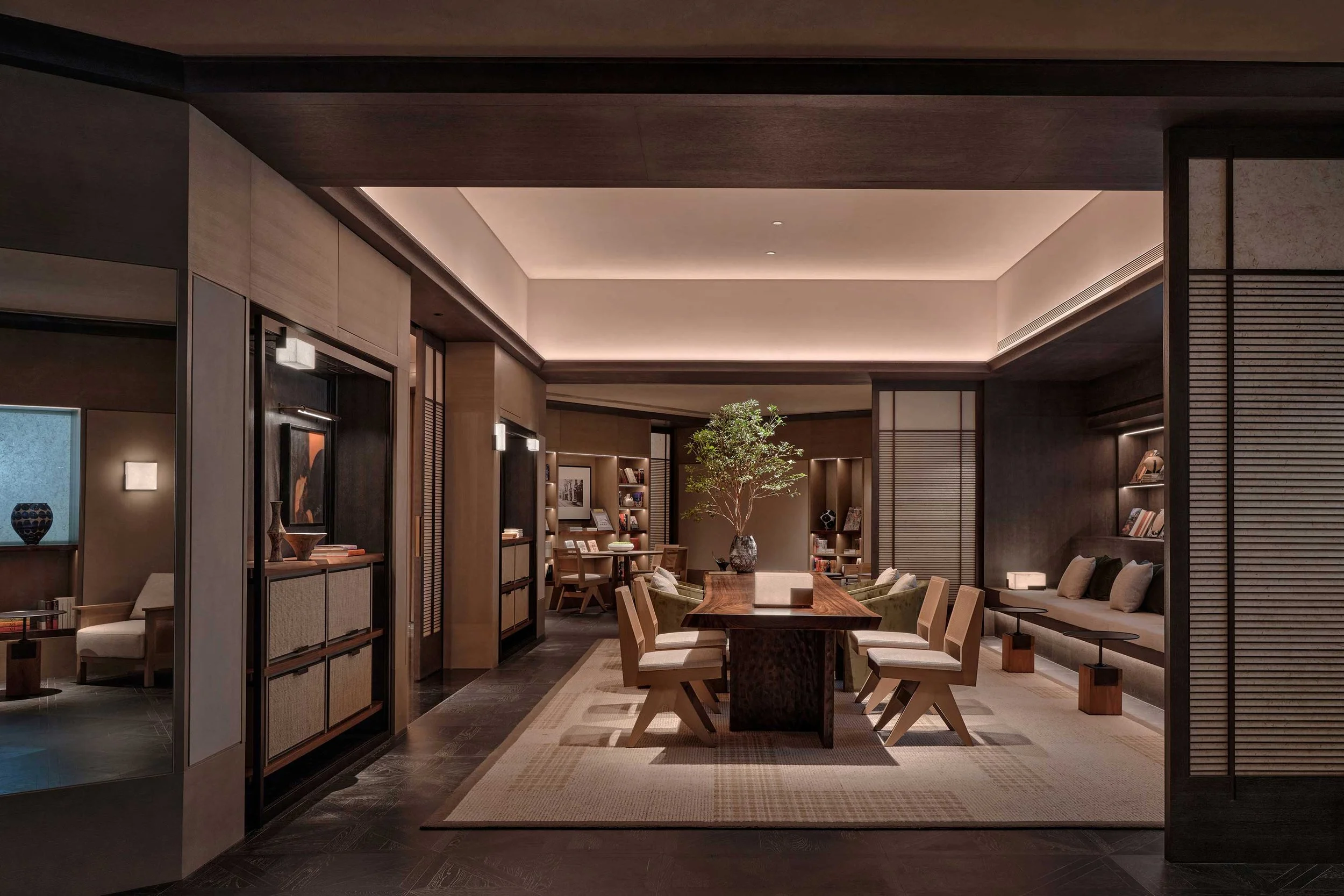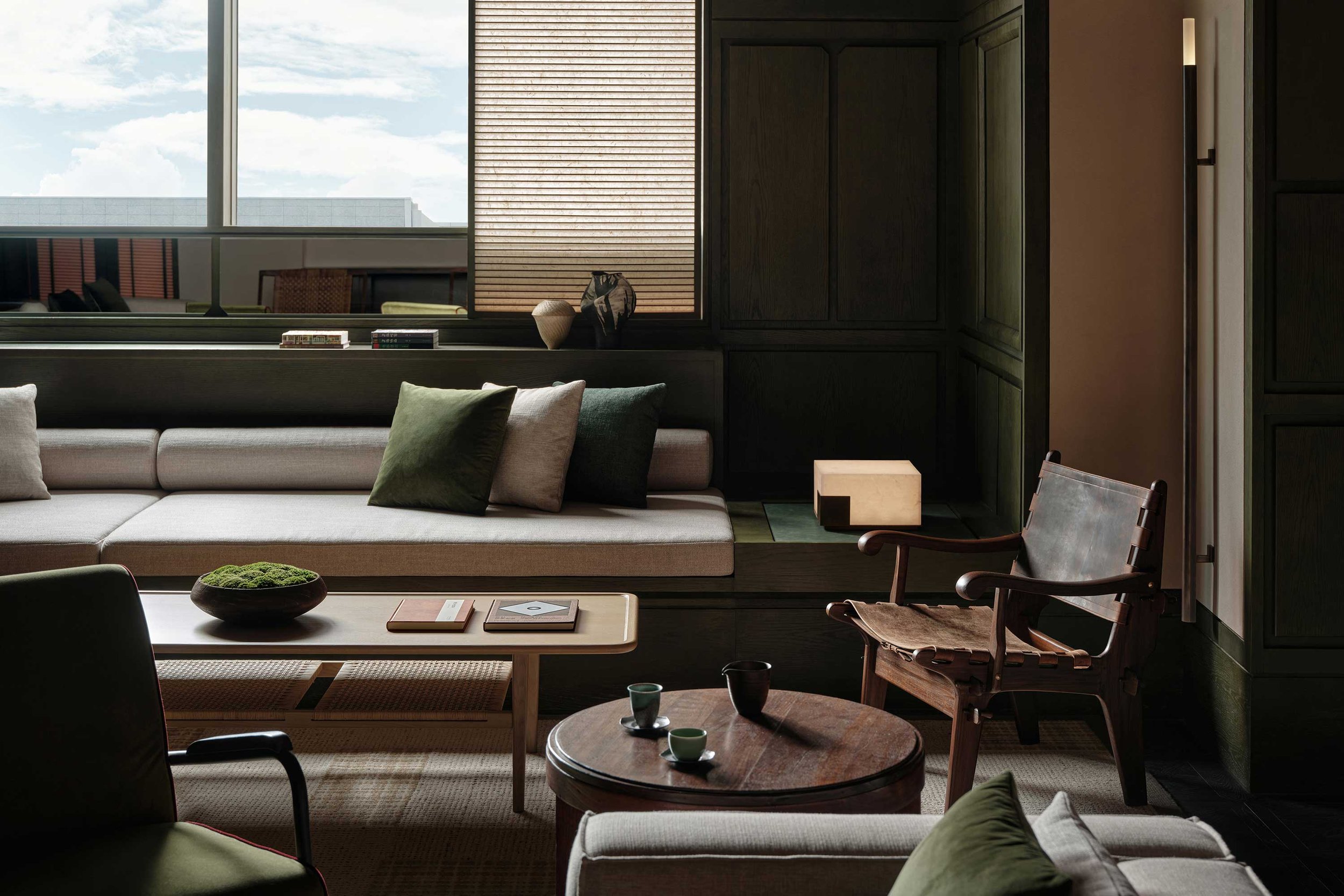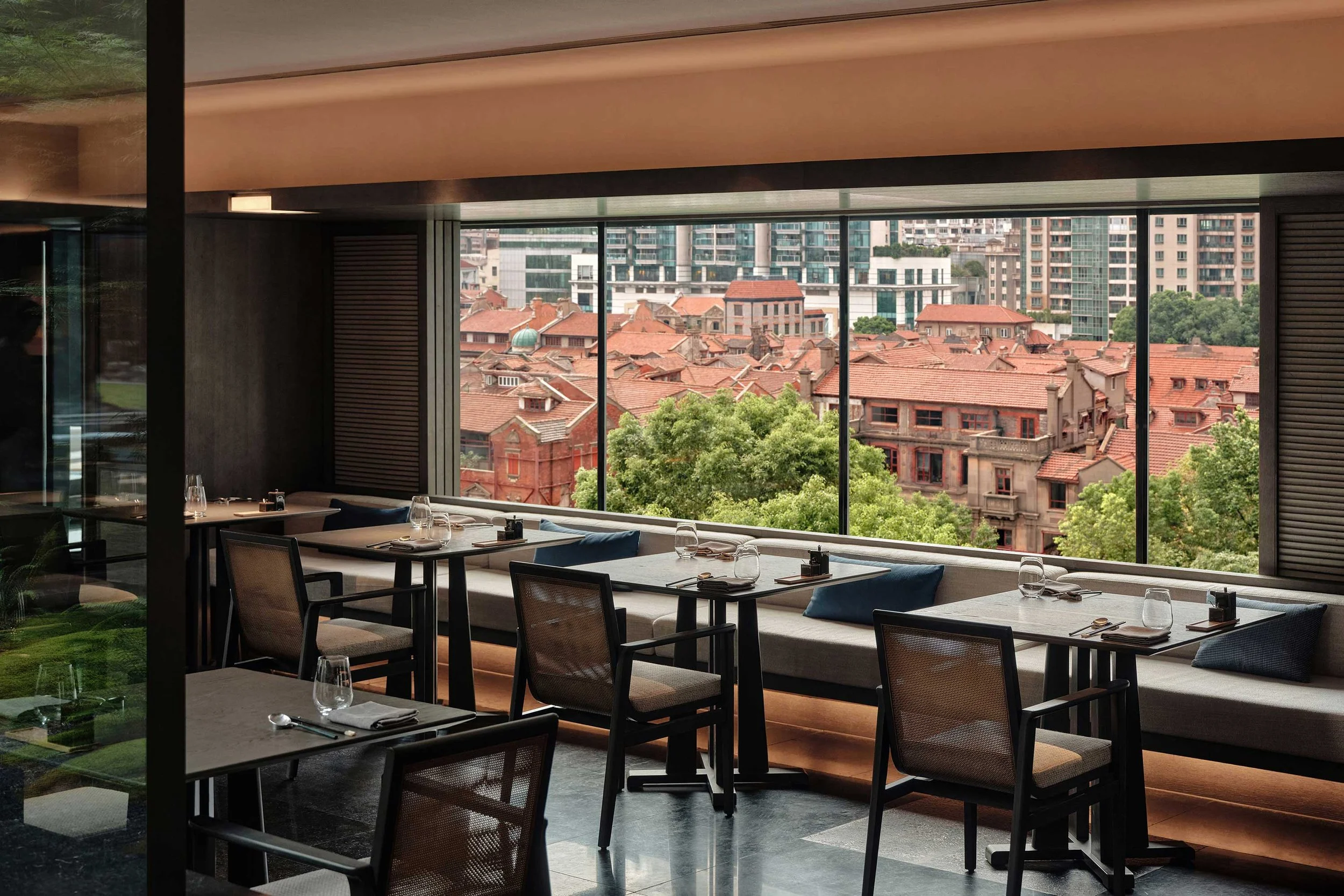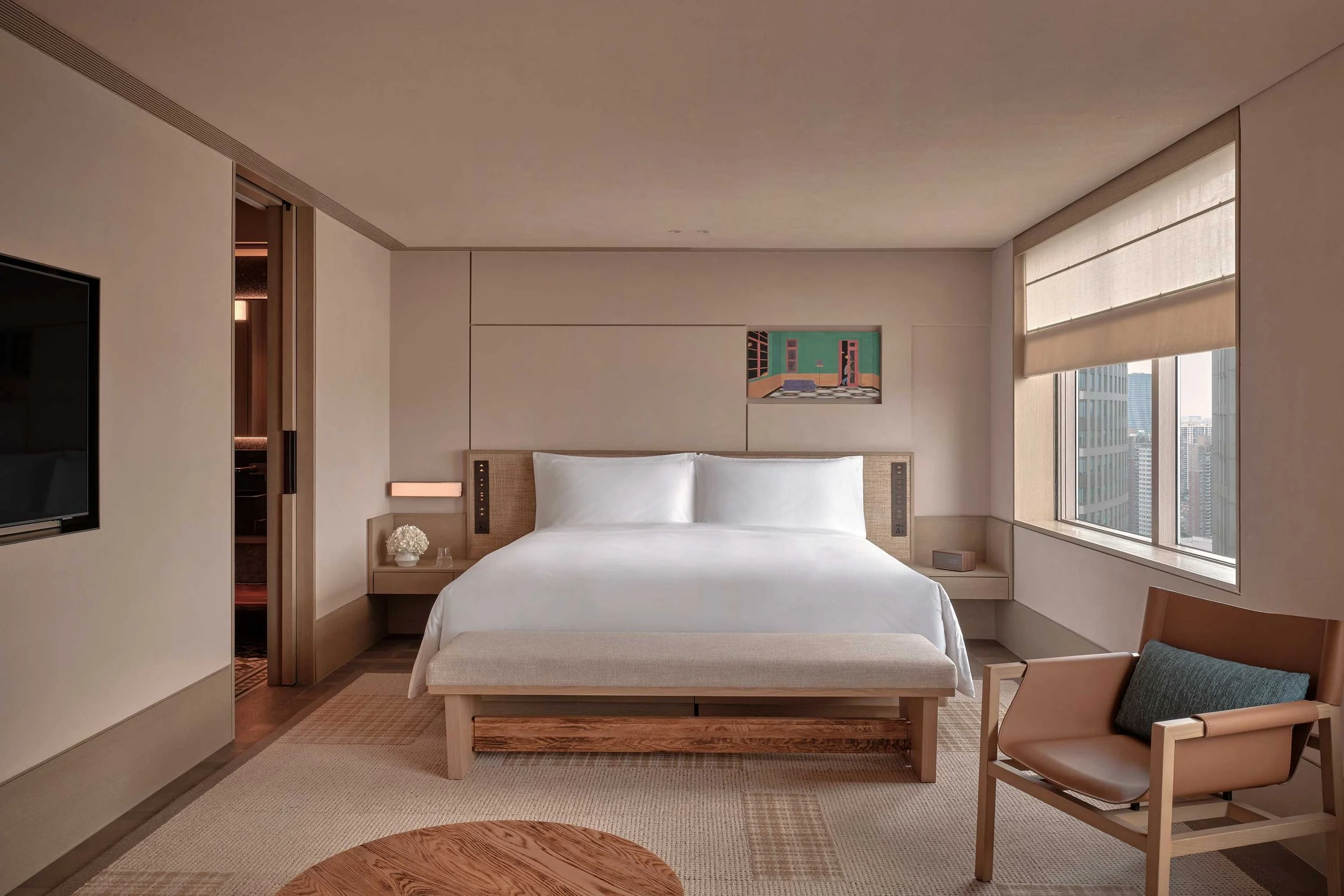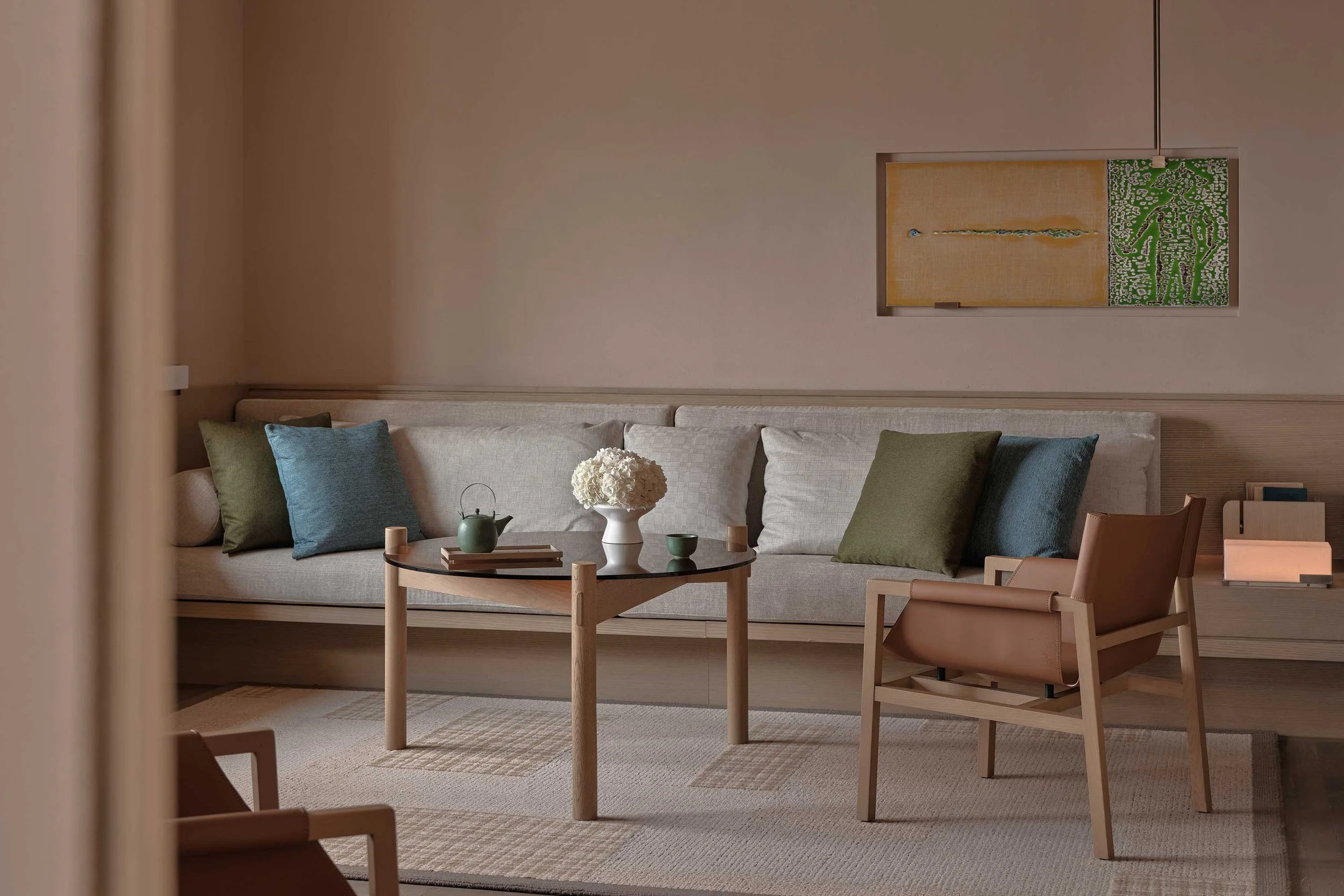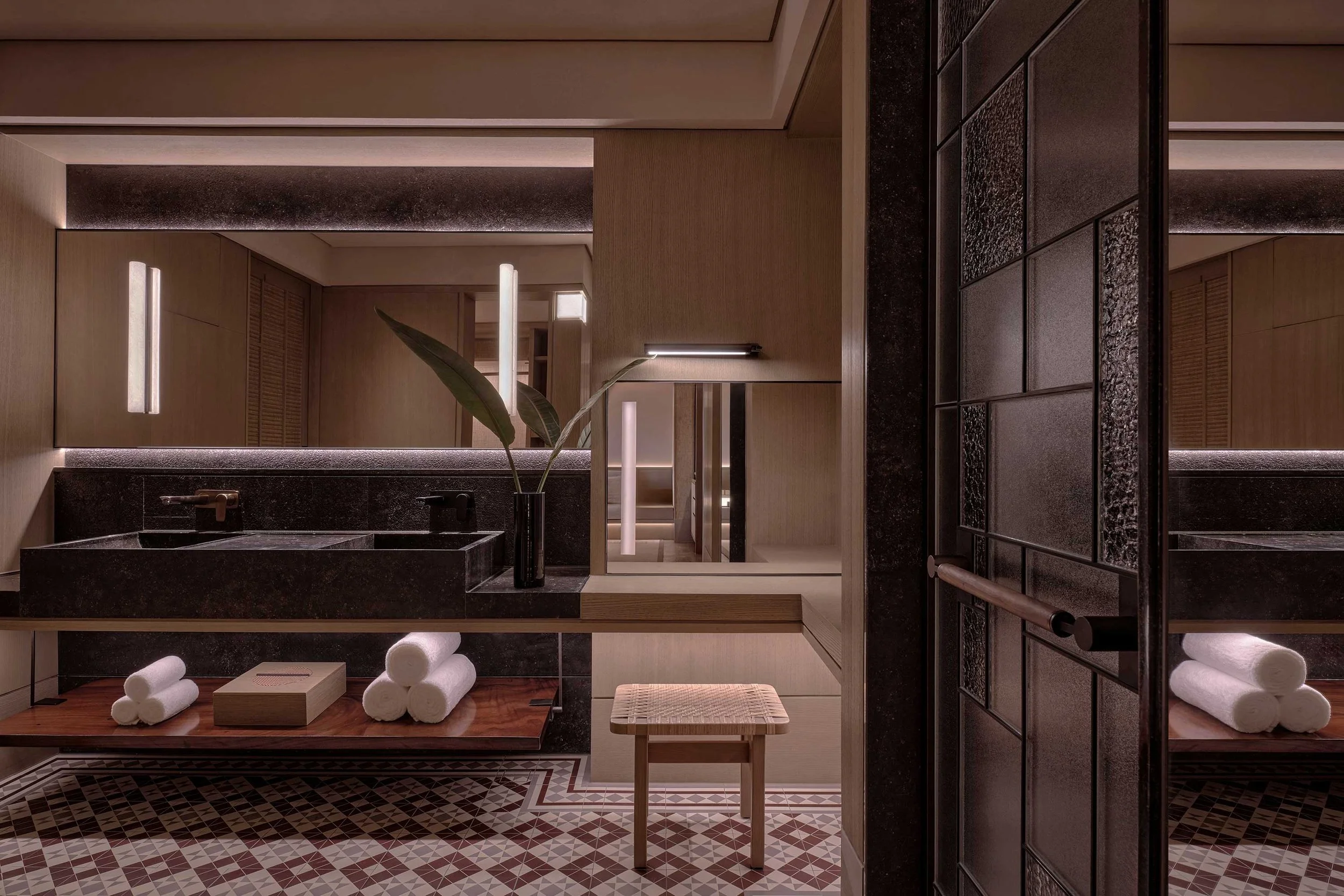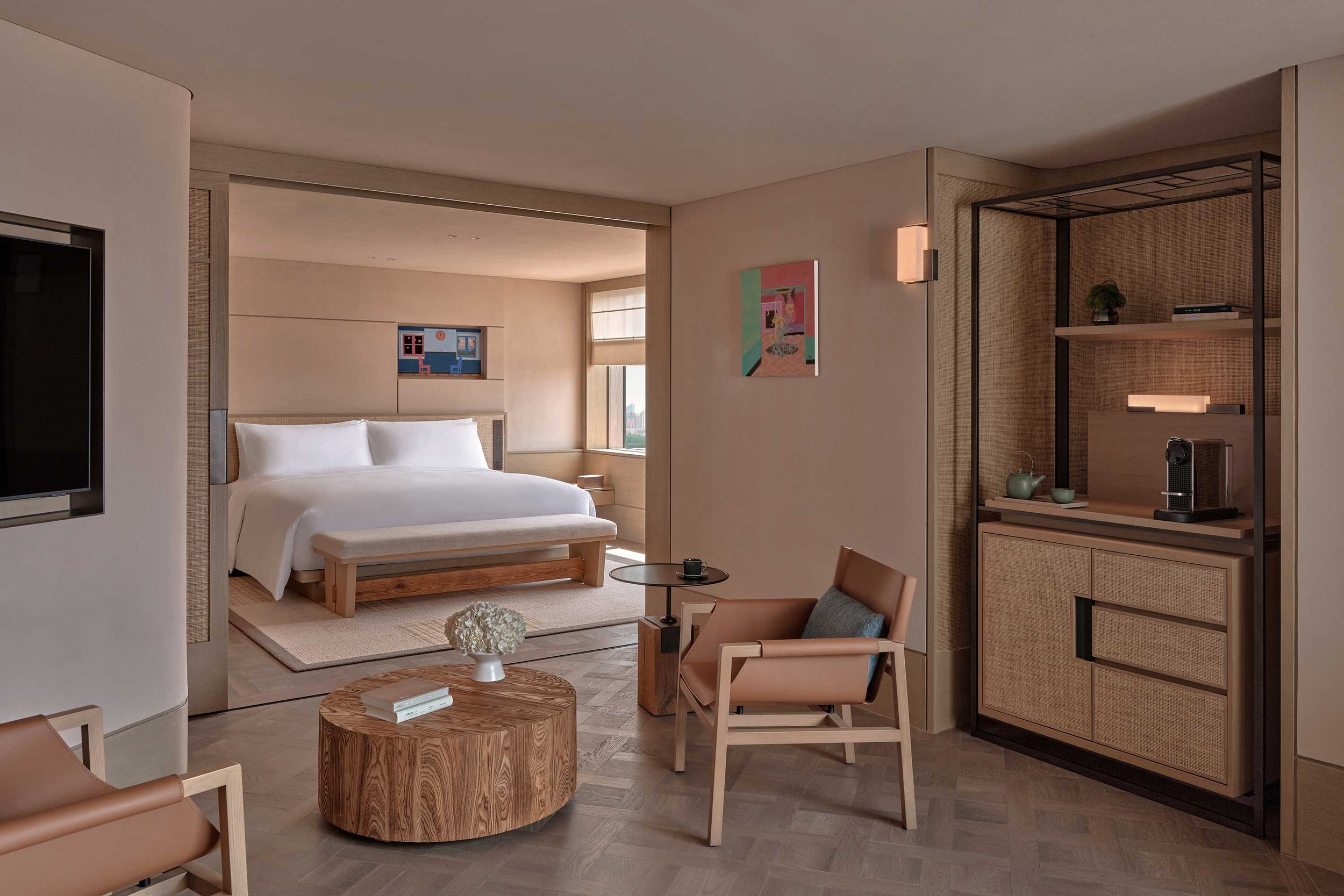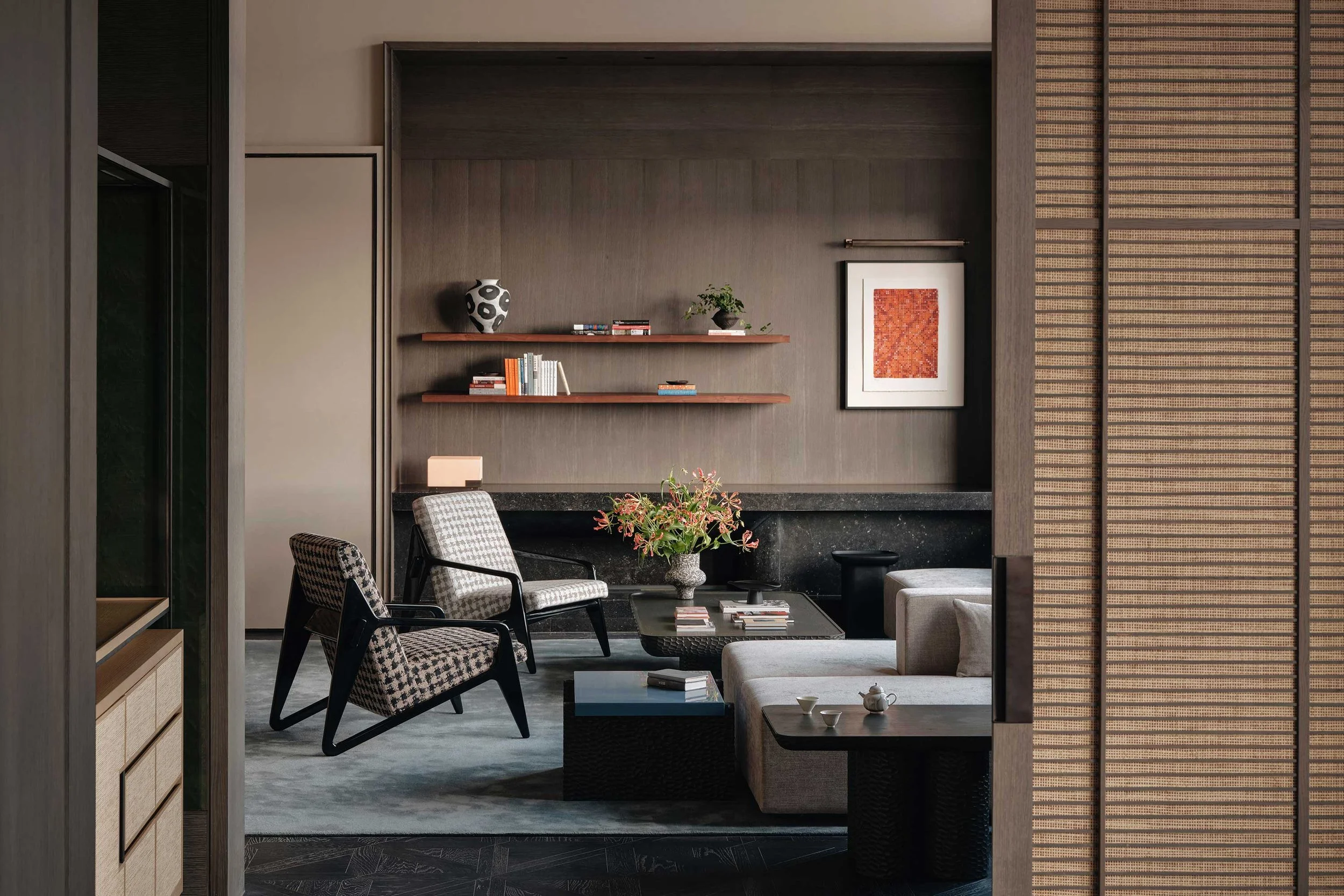Alila’s Newest Urban Resort Opens in Shanghai
Hyatt’s Alila brand arrives in Shanghai, with Horizontal Design at the helm of interiors that bring a calm escape from the chaotic city beyond
Seeing the fundamentals well executed is an increasingly rare treat in modern hospitality. Too many contemporary hotels pay excess attention to tricks and gimmickry, while failing to focus on what makes guests feel truly warm and welcome. Most essential to a sense of comfort is intimate, flattering illumination, something frequently overlooked, or worse, over-engineered. Alila Shanghai, however, has been lit to perfection and for the most part is sublimely dim. Where natural light won’t do — such as in corridors or those guestrooms with relatively low ceilings due to the layout inherited from the former Four Seasons — a succession of shaded lanterns set at various heights illuminates the path ahead and not much else.
This care for atmosphere, and the guest’s emotional experience, comes courtesy of Shenzhen- and Beijing-based interior designer Ju Bin, whose studio Horizontal Design was tasked with converting an ageing urban landmark into something akin to a remote resort. This is, of course, very much in keeping with the Alila brand. The Hyatt-owned group’s city offerings have been curious experiments in bringing the calm of Ubud’s hinterland or the sparkle of Maldivian seas to the likes of central Kuala Lumpur or Jakarta, and now Shanghai. Despite its somewhat challenging architectural limitations, Alila Shanghai presents, perhaps, the brand’s most accomplished urban execution to date, with meandering public spaces set across various pavilions, anchored around tranquil gardens, all doing their best to conceal the hotel from the chaos of China’s commercial capital.
Public spaces offer a strong sense of connection to the outdoors thanks to extensive floor-to-ceiling windows that flood the otherwise moody lobby, lounge and library with natural light. These are spaces to linger, and despite sitting at the heart of a bustling urban core, no one’s in a hurry. Seating areas are furnished with low-slung sofas and armchairs, including vintage wood and leather pieces, enveloping guests in tones of forest, moss and stone, punctuated by brighter, earthy accents and a generous array of collected objects, books and lanterns that pay tribute to the shikumen district in which is the 186-key property sits. Other architectural references from the neighbouring Zhangyuan area have found their way into the interiors, most notably in the tiles used in guest bathrooms and lift flooring, as well as the lanterns.
External pathways connect the public pavilions, creating a series of outdoor spaces inspired by traditional Chinese gardens. Woven steel sheets shield paths from the towers beyond, while the hotel’s crimson-tinted bar, Secret Roof, offers a rather extraordinary view over the neighbouring shikumen that date back as far as 1882. Gathering, a towering steel tree sculpture by Shanghai-based artist Oscar Wang, is centred on a garden and greets guests in what the hotel calls its ‘welcome pavilion’.
Alila Shanghai’s escapist ambitions extend into the guestrooms, with each home to a unique selection of books on design, food, culture, art and Shanghai’s history. Bin has created a rather atmospheric journey from the public to the private realms. Almost counter-intuitively, the lobby and dining spaces are finished in darker tones, as well as playing a more upbeat soundtrack, while guestrooms are lighter, brighter and peppered with tan and beige textiles, flooring and surfaces, bringing a sense of lightness to the private realm. With the cream sheers drawn, it’s quite easy to forget you’re perched in the middle of Jing’an. Guestroom living areas are designed around expansive daybeds upholstered in ecru-toned fabric, lending the space to extended periods of reading and resting ensconced in pleasingly tactile clay walls. Plants and living floral arrangements are maintained by dedicated florists, while rattan screens and facades are found throughout, resulting in spare yet warm interiors filled with wood and leather accents.
Alila — whose name is Sanskrit for ‘surprise’ — was founded in 2001 and then acquired by Hyatt in 2018 as part of a larger purchase of hotel group Two Roads Hospitality. In this extension of the brand to Shanghai, we’re given some insight into the future of its design language, and an approach to hospitality that pays homage to its first openings in Jakarta and Bali more than 20 years earlier that focused on sustainability and locality. It all results in an offering sought after by the hardened road warrior seeking refuge from bland, corporate hotels, as much as the weekend holidaymaker seeking peace and respite from the world at large, while staying at the heart of it.
Text by Jeremy Smart

